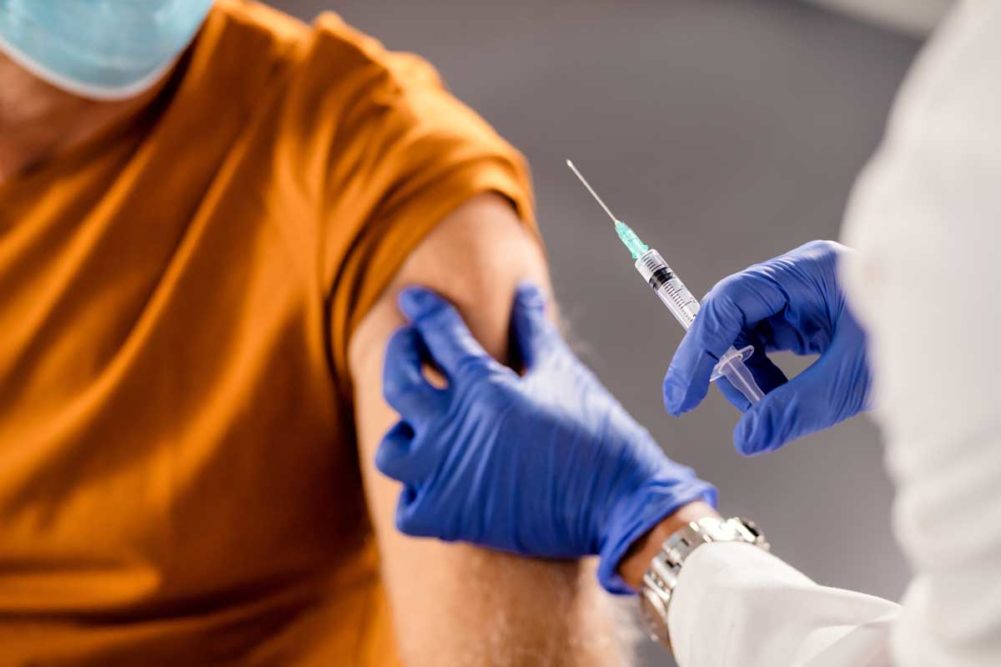WASHINGTON — The Centers for Disease Control (CDC) recommended that essential workers in the food and agriculture sector, including bakers, be included in phase 1b of the coronavirus (COVID-19) vaccination rollout. Phase 1b ensures frontline essential workers, like bakers, and persons 75 years and older have priority access to COVID-19 vaccines. According to CDC recommendations, phase 1a recommended health care personnel and long-term care facilities residents be vaccinated first. This initial phase began in December and is anticipated to be completed by the end of January.
“American Bakers Association (ABA) members have been operating on the front lines of the COVID-19 public health emergency,” said Robb MacKie, president and chief executive officer of the ABA. “Since the start, they have worked tirelessly to protect their workers and keep production operational to provide American families access to safe, nutritious, and wholesome baked goods. We appreciate CDC’s prioritization recommendations recognizing bakers in phase 1b and encourage states and localities to adopt this critical recommendation. The vaccine prioritization of the food and agriculture sector’s essential workers is vital to ensure a safe, steady supply of food throughout the country.”
To help answer questions about the vaccines available, the ABA hosted a webinar, COVID-19 Vaccines: What the Baking Sector Should Expect, with David Acheson, MD, CEO of The Acheson Group, a global food safety consulting agency. Dr. Acheson explained the basics of the coronavirus that causes COVID-19 and things the industry should know about the available vaccines and the roll-out strategy.
“We know quite a bit about these two vaccines,” Dr. Acheson said of the Pfizer and Moderna vaccines approved for emergency use in the United States. “They work; 95% efficacy is high. They are certainly reducing the severity of COVID-19 cases.”
The studies conducted with both vaccines show they are effective at preventing the development of symptomatic COVID-19 or reducing the intensity of it. Dr. Acheson stressed that while he personally believes further research will show these vaccines to also be effective at reducing transmission, current studies have not confirmed this to be the case, which means everyone must continue the preventive measures that are already in place: wearing PPE and social distancing. This has created a communication challenge.
“We don’t know right now how long we will have to continue these preventive measures,” Dr. Acheson said. “There’s a hope that by June we’ll have enough people vaccinated, so we need to plan to continue the preventive methods at least until then, but there are a lot of unknowns between now and then.”
When planning a company’s vaccination program, bakeries need to pay attention to what their states are doing. While the CDC recommends bakers be a part of the phase 1b roll-out, the plan is controlled at a state and local level, so it is critical that companies are plugged into what their states are doing.
Dr. Acheson also noted the common side effects seen with both vaccines available in the United States. Baking companies should take these into consideration when planning their programs. Short-term reactions can include fatigue, headache, muscle pain and fever. With the Moderna vaccine some of these were severe enough to interfere with daily activity.
“You want to stagger the vaccinations,” he said. “You don’t want to administer the vaccine to your entire workforce in one morning if some are then going to be out for 24 hours with side effects.”
These more common side effects, which also included pain at the injection site, joint pain, nausea and vomiting, resolved within 48 hours. As the vaccines are administered to more people, Dr. Acheson did note that a more severe allergic reaction has occurred with the Pfizer vaccine. While still rare, for every million doses administered 11 have shown to have acute allergic reactions that can be life-threatening if not treated right away. Because of this, it is recommended that vaccinations happen with proper medical support, such as epinephrine, and medical personnel, in case of such a reaction. Similar reactions have been seen with the Moderna vaccine. Typically these reactions are fast, happening within 30 minutes, and mimic an allergic reaction to peanuts or fish, Dr. Acheson explained. With proper medical attention, they are usually reversible. He stressed again that these instances are rare, but a COVID-19 vaccination clinic should not be treated with the casualness of a flu clinic.
As baking companies plan their vaccine strategies they will need to consider whether they will mandate or incentivize getting vaccinated, but the biggest challenge will be communicating to employees the risk, the benefits, and why masks and social distancing are still necessary.
“The vaccines work and reduce risk; that’s an important message,” Dr. Acheson said. “There’s a reason to get it at the individual level, and there’s a very real reason at the community level to prevent risk.”





